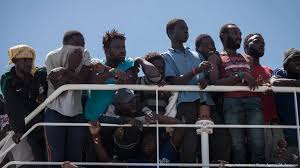
The new pact expected to be officially presented by the European Commission early this year would also determine the way and manner deportations are “managed and conducted”.
Consequently, member States would be granted “more powers to enforce deportations” and further “simplify the deportation process for illegal migrants”.
Furthermore, it will also be harder for affected migrants to be able to appeal against deportation decision.
The Point also heard from officials that non-compliant countries would face “stricter sanctions including political and economic measures” and that the sanctions can be either “comprehensive or selective”.
It is important to note that under a similar scheme in 2021, The Gambia was one of the first countries that were sanctioned for “uncooperative conduct”.
Already human rights groups and academics have condemned the plan, prompting over ninety organisations calling on the EU to reject it.
Responding to this correspondent, regarding the concerns about human rights of the affected Gambian migrants, an official noted: “It focuses on those who entered illegally … It will also deter irregular migrants and further prevent the exploitation of people by smugglers.”
Presently the EU is trying to strike a fine balance regarding the deportation of migrants to third countries versus adhering to international laws.
Meanwhile, the European Travel Information and Authorization System (ETIAS) and the Return Case Management Systems (RCMS) are also expected to play an important role in the process.





